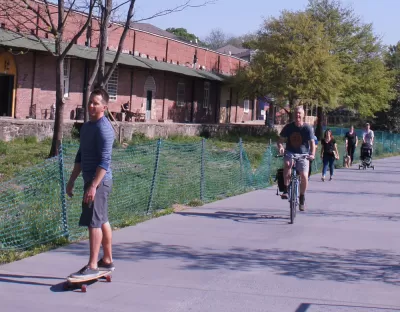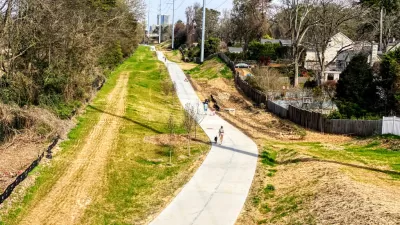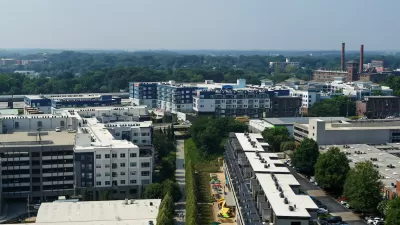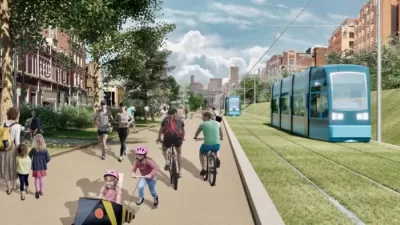In an interview, Atlanta BeltLine visionary Ryan Gravel discusses the ongoing project and how it fits an emerging, multidisciplinary understanding of what good infrastructure can be.

Ryan Gravel is the man who conceived of Atlanta's BeltLine, an "infrastructure corridor" that will loop around the city containing transit, green space, bike/pedestrian paths, and housing. Angie Schmitt writes, "Gravel says what's happening in Atlanta with the BeltLine is part of a bigger shift: taking 20th century infrastructure and repurposing it for 21st century needs."
In the interview, Gravel references his recently-published book, Where We Want to Live. "We're at the beginning of this pretty significant shift that I think is on the order of magnitude of sprawl. We want things to change, we need things to change for our survival, but as they do change we need to be thoughtful about how we do that so that's its equitable."
Gravel emphasizes the people-centered, democratic impetus behind BeltLine. "It wasn't part of some big plan for the city, it came from an academic environment. It didn't come from City Hall and it didn't come from developers, people could just evaluate it. And it's really the public that made the project happen. Because the people of Atlanta fell in love with it."
FULL STORY: BeltLine Visionary: It’s Time to Radically Reconceive Urban Infrastructure

Planetizen Federal Action Tracker
A weekly monitor of how Trump’s orders and actions are impacting planners and planning in America.

Chicago’s Ghost Rails
Just beneath the surface of the modern city lie the remnants of its expansive early 20th-century streetcar system.

San Antonio and Austin are Fusing Into one Massive Megaregion
The region spanning the two central Texas cities is growing fast, posing challenges for local infrastructure and water supplies.

Since Zion's Shuttles Went Electric “The Smog is Gone”
Visitors to Zion National Park can enjoy the canyon via the nation’s first fully electric park shuttle system.

Trump Distributing DOT Safety Funds at 1/10 Rate of Biden
Funds for Safe Streets and other transportation safety and equity programs are being held up by administrative reviews and conflicts with the Trump administration’s priorities.

German Cities Subsidize Taxis for Women Amid Wave of Violence
Free or low-cost taxi rides can help women navigate cities more safely, but critics say the programs don't address the root causes of violence against women.
Urban Design for Planners 1: Software Tools
This six-course series explores essential urban design concepts using open source software and equips planners with the tools they need to participate fully in the urban design process.
Planning for Universal Design
Learn the tools for implementing Universal Design in planning regulations.
planning NEXT
Appalachian Highlands Housing Partners
Mpact (founded as Rail~Volution)
City of Camden Redevelopment Agency
City of Astoria
City of Portland
City of Laramie





























